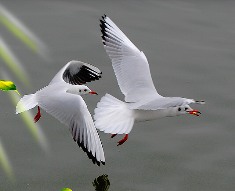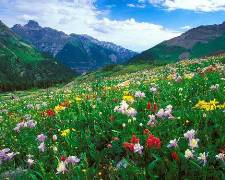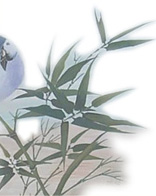|
 Listen to Shirley Singing the Poem in Chinese Dec 14, 2013 Listen to Shirley Singing the Poem in Chinese Dec 14, 2013
 Listen to Shirley Singing the Poem in English Dec 14, 2013 Listen to Shirley Singing the Poem in English Dec 14, 2013
 Listen to Shirley Singing the Poem in Chinese & in English Dec 14, 2013 Listen to Shirley Singing the Poem in Chinese & in English Dec 14, 2013
 Listen to Shirley Singing the Poem in English & in Chinese Dec 14, 2013 Listen to Shirley Singing the Poem in English & in Chinese Dec 14, 2013
 Listen to Shirley Explaining the Poem Listen to Shirley Explaining the Poem
 Follow Shirley to Read the Poem & New Words Follow Shirley to Read the Poem & New Words
 Learn the Meaning of the Poem with Shirley Together Learn the Meaning of the Poem with Shirley Together
 See Shirley's Painting for the Poem Dec 16, 2013 See Shirley's Painting for the Poem Dec 16, 2013
 Original Poem, Lyrics of the Song in Chinese and Pronunciations Original Poem, Lyrics of the Song in Chinese and Pronunciations
You can click on any Chinese Character to open the New Character Board and see its Chinese pinyin, meaning, pronunciation and follow my reading, you can also click on the links to enter the Painting Column, to see more paintings and art notes that I wrote for the poem.
ÊùúÁî´
唐 - táng (618-907)
杜甫 —dù fǔ (712-770)
江碧鸟逾白-- Jiāng bì niǎo yù bái,
山青花欲燃-- shān qīng huā yù rán。
‰ªäÊò•ÁúãÂèàËøá-- Jƒ´n ch≈´n k√Ýn y√πq√π,
何日是归年-- hérì shì guī nián.。
江碧鸟逾白-- Jiāng bì niǎo yù bái,
山青花欲燃-- shān qīng huā yù rán。
‰ªäÊò•ÁúãÂèàËøá-- Jƒ´n ch≈´n k√Ýn y√πq√π,
何日是归年-- hérì shì guī nián.。
何日是归年-- hérì shì guī nián.。
何日是归年-- hérì shì guī nián.。
The Main Meaning of the Poem and the Lyrics of the Song in English
By Du Fu(712-770)
Tang Dynasty (618-097)
The bluish river sets off the birds more whiter,
The green mountains show the flowers like the burning fire.
This spring will soon pass,
What day can I return home?
The bluish sets off the birds more whiter,
The green mountains show the flowers like the burning fire.
This spring will soon pass,
What day can I return home?
What day can I return home?
What day can I return home?
About the Poet – Du Fu
Du Fu ÊùúÁî´ d√π f«î(712-770) was born in today's Henan province during Tang Dynasty (618-907). He is one of the greatest poets in the history of Chinese poetry.
Du Fu had a very good home education; he had been writing poetry since he was 5 and started to learn Chinese calligraphy when he was 9. He communicated with adults through poetry from the age of 15 or 16.
His first travels were in Wu and Yue—today's Zhejiang and Jiangsu provinces and he knew another equally great poet of Tang Dynasty—Li Bai at the age of about 20. At that time, his poems were very positive and full of dreams.
When he was 22 years old, he failed in the imperial examinations but he stayed in the capital Chang'an city—Today's Xi'an for about 10 years, living a very poor life, and he got to know much about the lives of common people. His poetry entered into a new phase, that was Realism.
As a follower of Confucian philosophy, Du Fu cared for the future and fate of the country and he wished to have an opportunity to work for the country; however, it wasn't until he was 44 years old did he have the opportunity to become an officer.
In 755, the Rebellion of An and Shi led the country into a civil war lasting for about 8 years. During that time, Du Fu became a fugitive, experienced a harder and poorer life and his poetry reached its highest peak. In 770, when he was 58 years old and on his way back to his hometown, Du Fu died on a boat.
Du Fu experienced the decline of the Tang Dynasty from its most prosperous times and his poetry reflected the whole of this process, so people said his poetry was “Poetry of Historic Significance”. Meanwhile, he developed the traditional Chinese poetry forms.Either long or short poems, he could write them excellently.
Du Fu's poetry has been influential among poets for about 1,200 years.There are about 1,400 of his poems still in existence.
 Enjoy the Poem Enjoy the Poem
This poem was created in Chengdu, in the spring, 764, after the poet escaped from the Capital - Changan (today's Xian) because of the war of the Rebellion of An and Shi (755-763) for more than 10 years. It expressed the sigh with the emotion that the poet as a traveler who sojourned in the foreign land for a long time.
The character of this poem is to write the sad feeling via describing a happy views, set off by contrast and comparison was used each line of landscape as well...
Let us see the original poem:
The first two lines: 江碧鸟逾白,山青花欲燃。Jiāng bì niǎo yù bái, shān qīng huā yù rán. 江Jiāng in ancient Chinese, just points Yangts River, 碧 bì means bluish green, blue, niǎo means bird, 逾 yù means more, 白 bái means white, whiter. 山 shān means mountain, 青qīng means green, blueness, blue or black, 花 huā means flowers, 欲yù means wish, want, desire燃rán means burn, light. The two line means: the bluish river water sets off the birds more whiter, the green mountains contrast the red flowers just like the burning fire.
With the short 10 words, write out the 4 things: river, mountain, bird and flower, emphasize how the river is blue, the bird is white, the mountain is green and the flower is red. Plus the flowing river water, the flying birds, the rocking flowers in the mountains... use the rich, bright and sharp contrast colors, created a series wonderful and vivid landscapes.
On writing, they are a couple of Dui Zhang sentences: (in poetry ) a matching of both sound and sense in two lines, usually, with the matching words in the same part of speech;
You see:
江碧鸟逾白 -Jiāng bì niǎo yù bái,
山青花欲燃 - shān qīng huā yù rán。
-- Jiāng vs. shān: both of them are noun, one is water, one is mountain.
-- Bì vs, qīng: both of are adjectives, with different colors, but in the same color system one is bluish green, the other is green or blue.
-- Niǎo vs. huā: both of things are moving, one is flying in the sky, the other is planting on the ground.
-- Yù vs. yù: both of them are verbs, the first is also and adverb, in the same sounds, but the first one means exceed, be even more, to write how the bluish river sets off the bird more white. The second one means wants or wish, to give the flower a person’s character, it just wants to burn like fire. Makes people thinking of how it is waving in the wind.
-- B√°i vs. r√°n: both of them are adjectives, one is means white, the other means burny, it does not write the color, but anyone can think of the color of the fire.
After writing one or maybe 2 or series beautiful views ( rely on your imagination), the poet switches his writing:
‰ªäÊò•ÁúãÂèàËøáÔºå‰ΩïÊó•ÊòØÂΩíÂπ¥ Jƒ´n ch≈´n k√Ýn y√πgu√≤,h√©r√¨ sh√¨ guƒ´ ni√°n. ‰ªäÊò•Jƒ´n ch≈´n means this spring; Áúãk√Ýn, here it does not mean see or look at, but means y«énk√Ýn, means soon; Âèày√π means gain, Ëøágu√≤, means pass; ‰ΩïÊó•h√©r√¨ means what day; ÊòØsh√¨ means be, is, are ; ÂΩíguƒ´, means go back to, return; Âπ¥ ni√°n means year. These two lines mean: This spring will soon pass , What day can I return home (or what day can I return the capital)?
With the word: since the spring will 看又过 soon be past, points out the poem is written at the turning time an old season will pass and a new season will come. 又 yù, one year and one year, one spring and one spring, every year, I see the beautiful spring view, every year, I look forward to going back home.
Then, there is the last line: 何日是归年hérì shì guī nián. When can I go back to my home or the capital? It has expressed an involuntarily feeling. How I want to go back home, but, living in the times that the civil war is endlessly, really I do not know when I can return home and the capital at all.
Via a question finishes the poem, expresses how the poet aspires after the peace and how he is sad inside.
The view that the poet has seen and he has written is beautiful, anyway, instead of feeling happiness, it leads him think of how many years he has been a traveler who had left from his hometown and from the Capital. The beautiful view does not give him happiness, but lets him in so much more deeply anchorless sadness.
Instead of writing the pathos that the poet wants to go back hometown directly, but expresses the deeply nostalgia via writing a beautiful view, to write every thing via serving as a foil to the other thing, is the main artistic character of this poem.
Inspiration
First of all, Du Fu wrote this poem just like an artist painted a picture. In his poem, totally expresses the important ancient Chinese art theory: "There is a painting in a poem; and there is a poem in a painting".
Secondly, set off by contrast is not only a wonderful way to create a beautiful art work, but also we can also use it to beautify our existent and work environment, to make our daily life more pretty and more interest.
Thirdly, in management, we have to know our own roles. The core of people or work can only one, all of the others should service to help the core more outstanding and more important, just like the bluish river to sets off the bird more whiter, the green mountain to sets off the flower like the burning fire. Otherwise, the authority of management will be lost.
How do you think of my idea?
 If you have any questions, comments and suggestions, please write to shirley@ebridge.cn ; you are welcome to publish your opinions in Message Board as well. If you have any questions, comments and suggestions, please write to shirley@ebridge.cn ; you are welcome to publish your opinions in Message Board as well.
Shirley Yiping Zhang
Wrote, Painted, Translated, Sang & Recorded the Content Dec 16, 2013, in the USA
|

